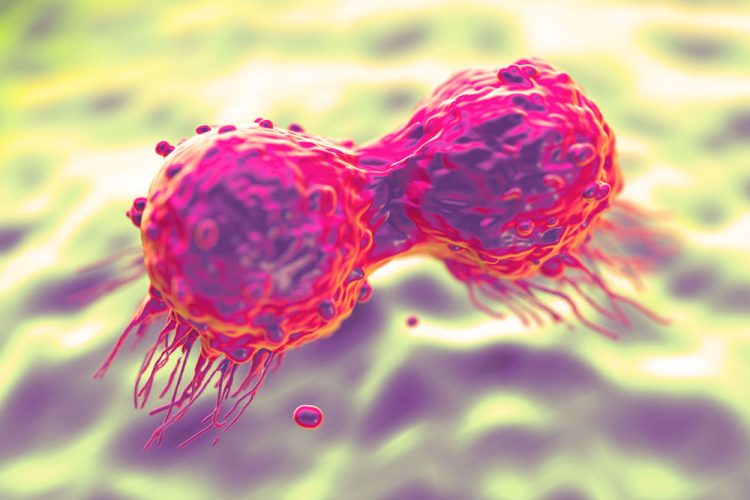Therapeutic peptide developed for triple-negative breast cancer
Posted: 25 January 2024 | Ellen Capon (Drug Target Review) | No comments yet
Scientists demonstrate how disrupting the Cx26 molecular complex in triple-negative breast cancer cells slowed tumour growth.


Researchers from the Cleveland Clinic, led by Dr Ofer Reizes and Dr Justin Lathia, have developed a therapeutic peptide that disrupts the molecular processes behind aggressive cancer cell growth. These findings offer a novel strategy for developing targeted treatments for triple-negative breast cancer, which currently has no approved options.
Dr Reizes, the Laura J Fogarty Endowed Chair for Uterine Cancer Research, commented: “It’s devastating that we currently have such limited options to help people with triple-negative breast cancer…We want our results to offer hope for these patients and their families and serve as a starting point to get more treatments into the development pipeline.”
Peptides
Peptides are short linear chains of amino acids that are usually <50 amino acids in length and often stabilised by disulfide bonds. Peptide synthesis entails design by rational methods with high specificity to bind and modulate a protein interaction of interest.1 Some peptides supplement existing proteins in the body, like insulin for people with diabetes.
The peptide in development is based on a 2018 Cleveland Clinic discovery and serves as a proof-of-concept for this type of drug for triple-negative breast cancer.
Triple-negative (ER-negative, PR-negative, HER2/neu not overexpressed) breast cancer has distinct clinical and pathologic features, and is a clinical problem owing to its aggressive behaviour and lack of targeted therapies that leave chemotherapy as the mainstay of treatment, resulting in a relatively poor prognosis.2 The cells of this cancer lack certain receptors so drugs designed to treat other subtypes of breast cancer will not work.
A previous study with Dr Reizes’ and Dr Lathia’s team discovered that a type of protein called connexin (Cx26) forms a molecular complex in triple-negative breast cancer cells that increases their likelihood of recurring or spreading through the body.
Cx26 expression has been associated with lymphatic vessel invasion, large tumour size, high histological grade and poor prognosis in breast cancers.3 Therefore, the researchers aimed to disrupt this complex to limit the cancerous properties of the cells.
Cx26
A peptide therapeutic was developed by first authors Dr Erin Mulkearns-Hubert and Dr Emily Esakov Rhoades. The peptide’s sequence is the same as the component of Cx26 necessary for the molecular complex to form. Dr Mulkearns-Hubert commented that the aim was to saturate the system with the peptide and interrupt the ability of full-length proteins to bind.
She explained: “The peptide’s design was actually relatively straightforward and worked beautifully, slowing tumour growth in preclinical models…Triple negative breast cancer remains an incredibly difficult tumour type to treat, so developing and verifying strategies like this peptide’s design is critical to moving forward.”
The team also observed that the drug prevented in vitro cancer stem cells from self-renewing, which is a characteristic of aggressive cancer cells that supports treatment resistance. Currently, they are exploring the drug’s potential for clinical trials.
This study was published in Molecular Cancer Therapeutics.
References
1 Marqus S, Pirogova E, Piva TJ. Evaluation of the use of therapeutic peptides for cancer treatment. Journal of Biomedical Science. 2017 March 21 [2024 January 18]; Available from: https://jbiomedsci.biomedcentral.com/articles/10.1186/s12929-017-0328-x
2 Carey LA, Irvin WJ. What is triple-negative breast cancer? European Journal of Cancer. 2008 December [2024 January 18]; 44(18):2799-2805. Available from: https://www.sciencedirect.com/science/article/abs/pii/S0959804908007508
3 Arai T, Kim SJ, Miyoshi Y, et al. Connexin26 expression is associated with lymphatic vessel invasion and poor prognosis in human breast cancer. Breast Cancer Research and Treatment. 2007 January 3 [2024 January 18]; 106:11-17. Available from: https://link.springer.com/article/10.1007/s10549-006-9465-8
Related topics
Amino Acids, Cancer research, Peptide Therapeutics
Related conditions
Cancer Research, Triple-negative breast cancer
Related organisations
Cleveland Clinic







